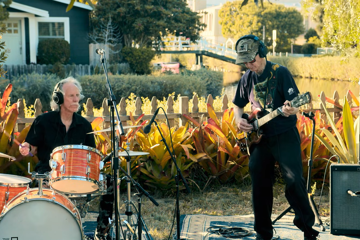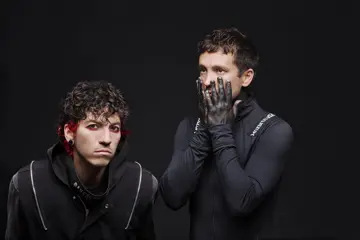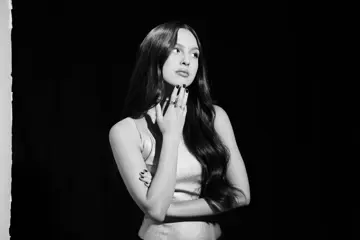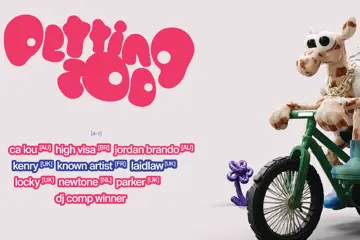It so often happens, due to the nature of press interviews being so frenzied and impersonal and repetitive, that the interview subject gets tired of talking in circles. Such was the case with Michael Winterbottom, the super-prolific English director of the upcoming Trisha – an India-set retelling of Thomas Hardy's Tess Of The D'Urbervilles – and a man whose directorial career seems impossible to comfortably compartmentalise.
You see, Winterbottom simply develops films he likes. Sure, there are probably some subconscious themes he attaches himself to in a lot of his work – getting to the heart of representing a place or a state-of-mind, for one – but they're never to a 'style' that's discernibly his, or to a theme that's incisive enough to stick out. Which is a hard thing for a critic to face, you know? (Perhaps something, too, which Winterbottom may himself disagree with, or be offended to hear.)
But he's a bold director, amidst his other, less immediate qualities. He's done considerable violence and unsimulated sex, yet he's not a Gaspar Noé; he's not renowned for those things, nor does he work to break new ground with them. He simply flexes those muscles when the story calls for it, and then, satisfied, he moves on.
However we, as critics, we want to reduce things down to their essence, so people can see how much we've considered them, and how we are the ones who can pick up on the silent language of what we're seeing, and translate it into emotive, human terms: from the visceral into the readable. Tarkovsky speaks to the spirit, we say, as Tarantino reconstructs with esoteric homages, and as Scorsese is unmatchable in drawing emotion from technical prowess. From those directors' key skills then grows something; the narratives of their films deepen and part under the guide of these keen talents, and that uniqueness becomes a new texture, layered and indelible atop the stories they're telling.
Don't miss a beat with our FREE daily newsletter
Those directors are specifically those things, but Michael Winterbottom, while containing some essence of all of those qualities, isn't defined by any one of them. His singularly defining directorial characteristic is that he has no singular, defining characteristic. He leaves no auteur's imprint upon the narrative in the traditional sense, but he nonetheless makes films that say very definite things.
So, to get to the bottom of this, and to avoid talk about Trishna – his request – the conversation turns to him, and his style.
“I think it's more enjoyable to be making a film, than not.” Winterbottom explains, in an amiable tone. “When you're working,” he continues, “you're talking to writers, and actors, and you're going to visit locations, and you're working with your editor. You've got a series of very interesting and enjoyable collaborations with a whole bunch of people. When you're not working, you're just sitting around fretting, and trying to persuade people to give you cash.”
More than an artistic hand-to-mouth mentality, though, Winterbottom assures that there is method and a pattern to his cycle of making films.
“It's a question of something you're interested in,” he answers. “Most of the films I've made are things that we've developed in the first place. It's not as if people are sending scripts and I'm looking for something in a script; it's not so I'll take [only certain] projects. You start with a vague idea – often – and it gradually becomes a film – sometimes. At the beginning, you're like, 'Oh, that sounds interesting,' or 'That place seems interesting' or 'That book seems interestng' or you read something in the paper, or you meet someone: whatever it is, it [makes] a starting point, which is something interesting.”
“And normally,” he adds, “we have two or three projects that we're [concurrently] working on. So you have [these] various ones at different stages. Some just don't even get made, and eventually they just drop off your radar. With Trishna…” – Trishna! – “with Trishna, we tried to make [that film] seven or eight years ago, and came back to it 18 months ago.”
The idea that his oeuvre, unlike that of many other directors who make a great many films, doesn't neatly define him traditionally as an auteur, is brought to his attention. He's mildly affronted, and probably rightfully so.
“From my point of view,” he rushes, confidently defensive, “going to the cinema, it's obviously quite handy to know what sort of film you're going to see when you go in. If a director's name is an easy label – like if you see a Woody Allen film, you know roughly what you're getting is a Woody Allen film – that obviously makes it easier, from a critic's point of view, from a distributor's point of view, deciding whether you're going to see [or screen] it.”
“But,” he points out, “that's not my problem. For me as a director, I'm making films all the time, so for me it's all about, 'Is this next idea interesting?' I think, often, if a film feels too close to something you've already done, that's something that makes it feel not interesting. The more films you make, the more you are going to cover areas similar to things you've done before, and when that happens, it can be hard sometimes to feel you're really approaching something fresh.”
“So,” he concludes, “[choosing projects] from ideas that at least on the surface [appear] to be something that you haven't done before, that is something far more interesting, from my point of view.”















